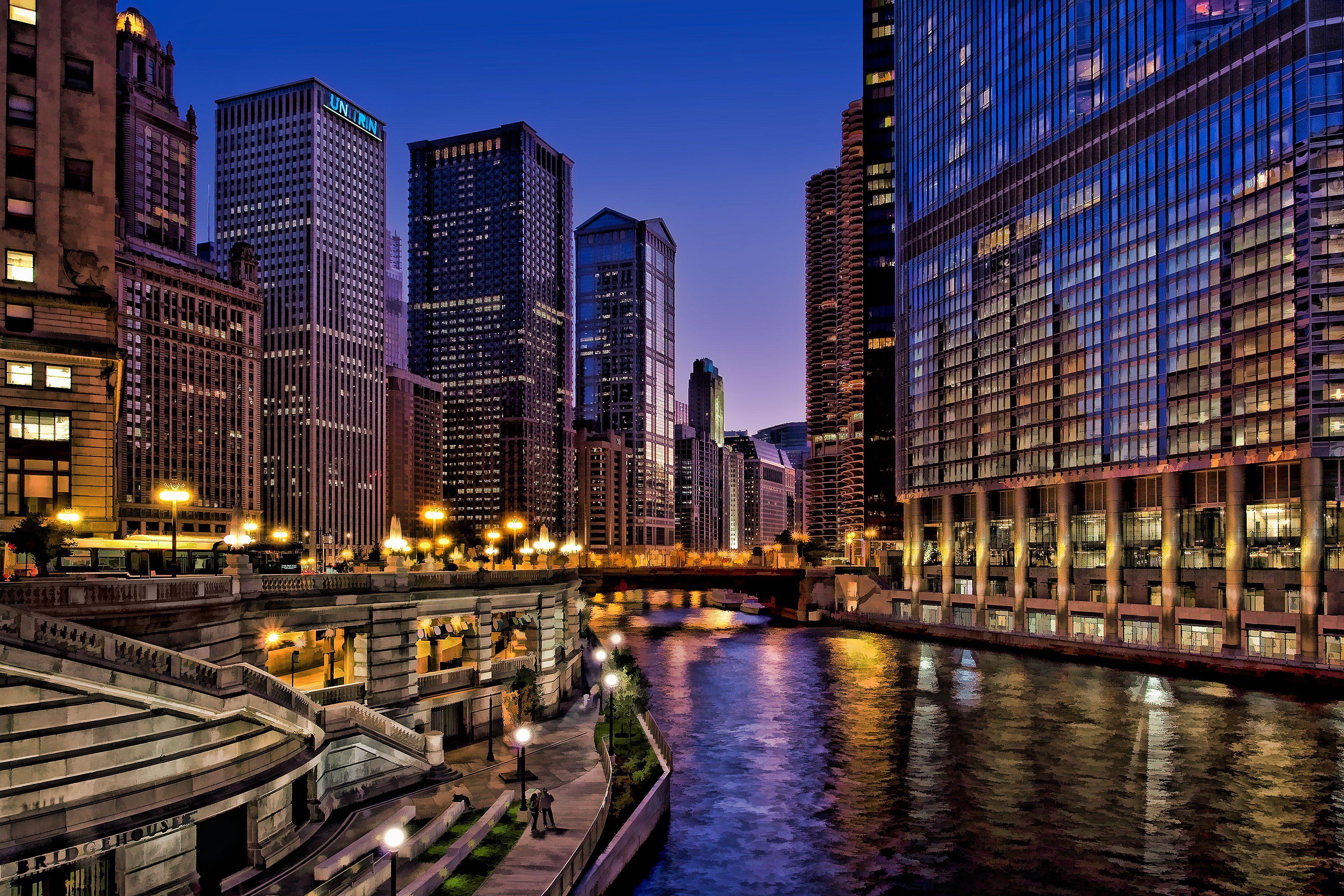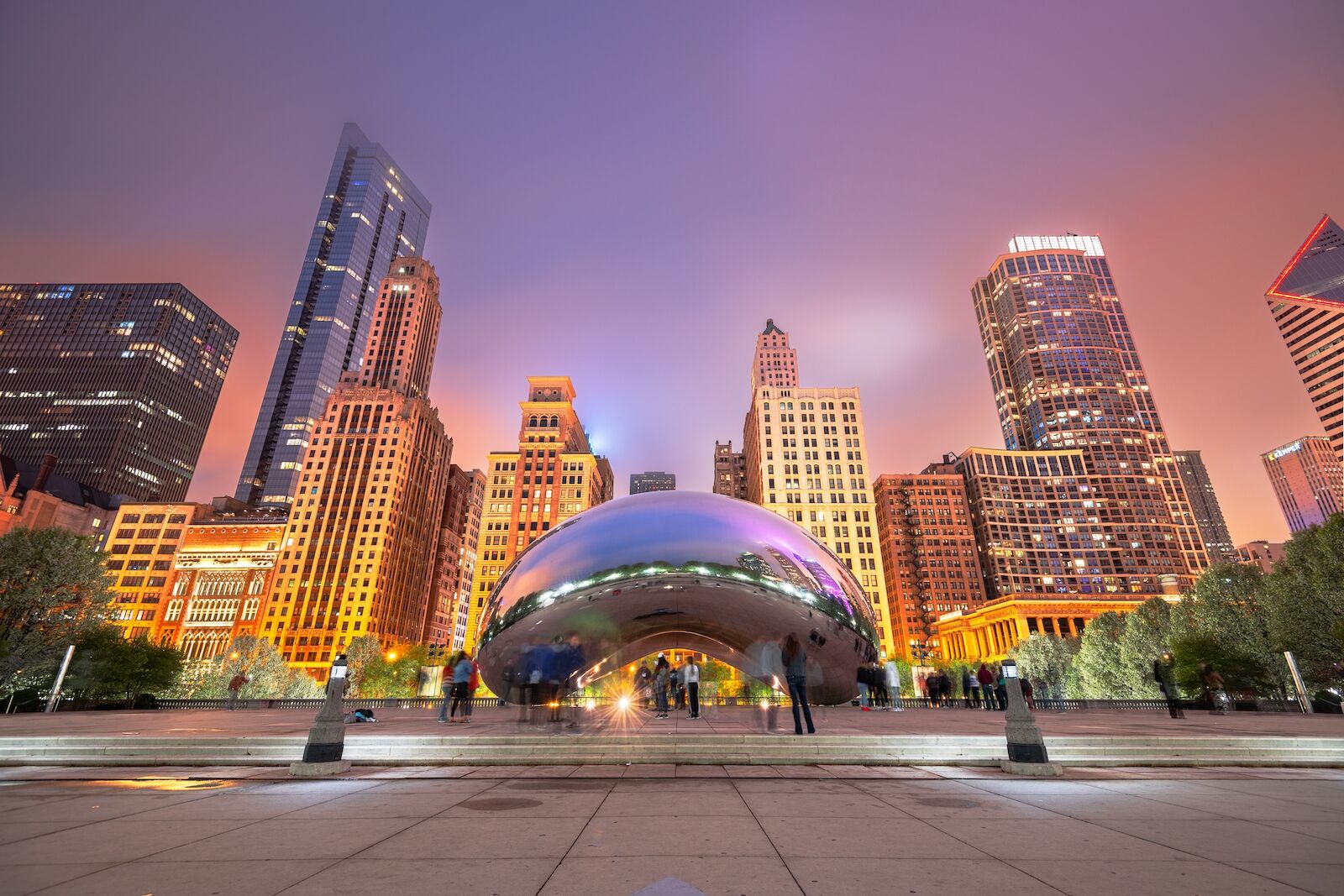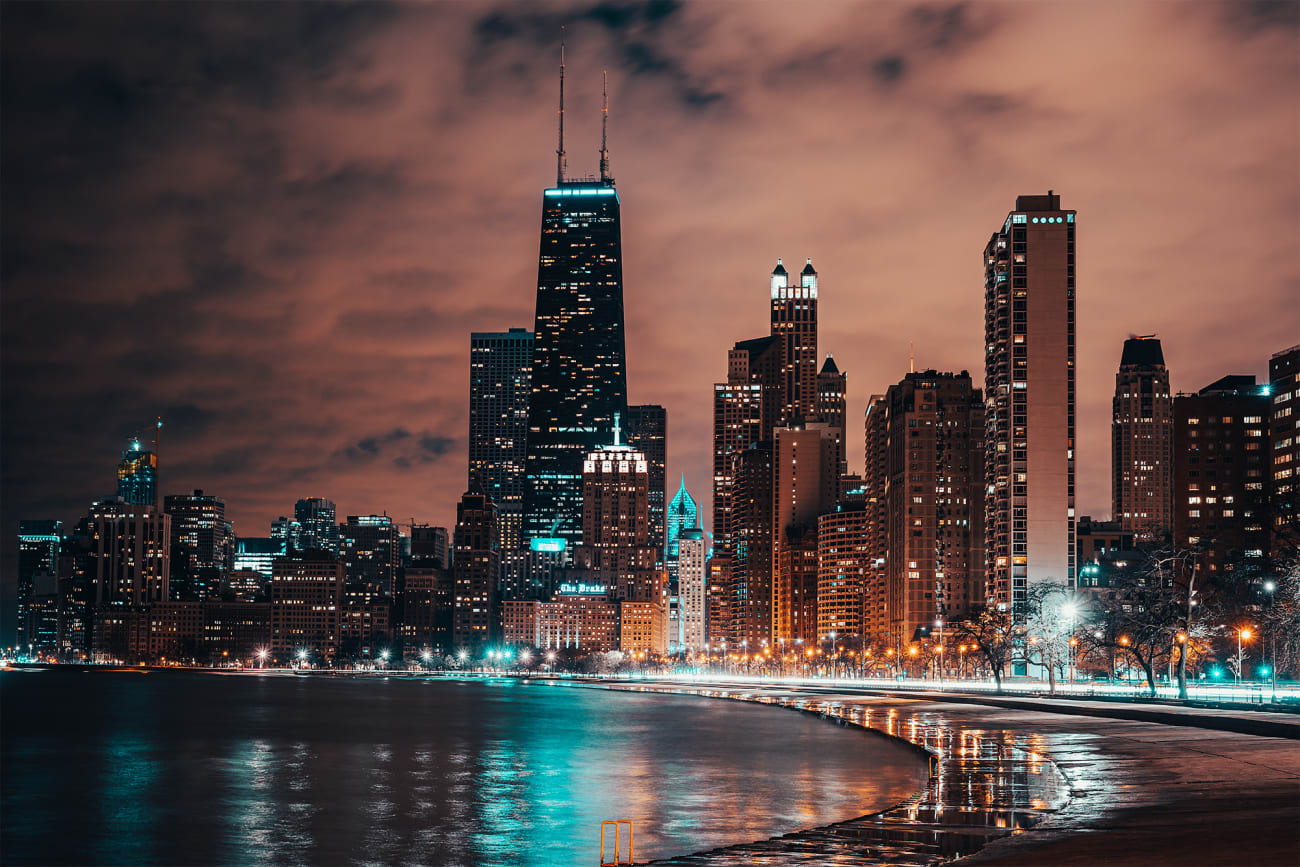Chicago, a city often imagined in a way that feels almost like it's a sibling to a place like Manhattan, just across a big river, holds a rather unique spot in the national consciousness. It possesses a kind of character all its own, distinct from, say, the constant hustle of New York or the spread-out feel of Houston, you know? This city, with its particular style and spirit, gives off a presence that really shapes how people see it, almost like it's putting on its own continuous performance. It's a place that, in some respects, truly projects an identity, a sort of public persona that we might think of as its very own "chicago show franchise."
That idea of a city having its own show, its own distinct brand, is quite interesting when you consider Chicago. It's not just about what happens on stages or screens, but how the city itself presents its daily life, its commerce, its sports teams, and even its infrastructure. There are these subtle cues and big events that, basically, contribute to the picture people hold in their minds when they think of Chicago. It's a collection of elements, really, that come together to form this overall sense of what Chicago is all about, a sort of collective presentation.
So, when we talk about a "chicago show franchise," we're looking at more than just entertainment; we're talking about the city's entire public face. It’s about how Chicago is perceived, how it competes, and how its identity shifts with major changes, both big and small. From the way businesses choose their locations to the way sports teams represent the city, everything plays a part in this ongoing civic story, this continuous production that is the Chicago experience.
Table of Contents
- Chicago's Distinct Identity: What Shapes the Chicago Show Franchise?
- A Sense of Place: How Does Geography Impact the Chicago Show Franchise?
- Economic Currents and the Chicago Show Franchise
- Corporate Battles and the Chicago Show Franchise: How Do They Play Out?
- Infrastructure Promises and the Chicago Show Franchise
- The Financial Pulse and the Chicago Show Franchise: What Does It Mean for the City's Future?
- Sports and the Chicago Show Franchise: A Colorful Representation
- Urban Planning and the Chicago Show Franchise: Lessons From Other Places
Chicago's Distinct Identity: What Shapes the Chicago Show Franchise?
When you think about Chicago, it truly has a certain feel to it, a character that stands apart. It's not quite like any other major city, is that right? There's a particular kind of grit mixed with a grandness that you just don't find everywhere. This distinct identity is a big part of what makes up the "chicago show franchise," the way the city presents itself to the wider world. It's almost as if the city has its own script, its own set of traditions and modern developments that come together to tell its story.
I mean, in some respects, the very idea of Chicago as a kind of show is fascinating. It’s not just the big attractions, but the everyday life, the way people move through the streets, the architecture that stands tall against the sky. All of these things contribute to the overall impression. For example, there's that thought of Chicago being across a river from Manhattan, a sort of parallel universe, which really highlights its separate yet significant place on the national stage. This comparison, in a way, helps define what Chicago is by showing what it isn't, and how it stands on its own two feet.
And it’s interesting how people sometimes have strong feelings about it. Like, I’ve heard someone say they’ve never been too fond of a particular aspect of Chicago, or maybe just the general idea of something there. That kind of personal reaction, honestly, speaks to how much of an impression the city makes. It’s not a bland, forgettable place; it evokes responses, both positive and, well, less positive. That emotional connection, or lack thereof, is definitely a piece of the "chicago show franchise" puzzle.
A Sense of Place: How Does Geography Impact the Chicago Show Franchise?
The physical setting of Chicago plays a surprisingly big part in how its "show franchise" comes across. Think about it: a city by a massive lake, with a skyline that’s pretty much iconic. This backdrop isn't just scenery; it influences how businesses operate, how people live, and even how the city sees itself. There's a particular kind of energy that comes from being a major hub in the middle of the country, yet still having that connection to water and vast open spaces, you know?
Consider, for instance, the situation where an editor is based right there in Chicago, while everyone else on the team is scattered across Houston, its suburbs, or other cities that, frankly, experience a lot of traffic just to get around. This geographical split, in a way, highlights Chicago's role as a central point, a place where important decisions or creative work might be anchored. It suggests that Chicago holds a certain weight, a kind of gravitational pull that makes it a preferred spot for certain operations, even if it means a bit of a disconnect for others. This central role is a key element of the city's self-presentation, a core part of the "chicago show franchise."
This sort of arrangement, where a key figure or function resides in Chicago while others are elsewhere, really speaks to the city's perceived importance. It’s not just a random choice; there’s usually a reason, a benefit to being in Chicago. Perhaps it's access to talent, a particular kind of urban environment, or just the historical significance of the place. Whatever the reason, this geographical centering contributes to the narrative of Chicago as a significant player, which, in turn, helps define the ongoing "chicago show franchise."
Economic Currents and the Chicago Show Franchise
The economic activity within a city, the big business decisions and the everyday commerce, absolutely shapes its public image, its "show franchise." For Chicago, these currents are pretty strong, influencing everything from job opportunities to the city's overall vibe. When companies make choices about where to put their main offices, it's not just about logistics; it’s about what that location says about them, and what it adds to the city’s story.
We heard about BP, for instance, making a decision about some of its chemical divisions. Houston and Chicago were both in the running to become the new headquarters. This kind of competition, honestly, shows how important Chicago is seen as a business center. It’s not just a random city; it’s a contender, a place that major corporations consider for their central operations. This competition, in a way, is a high-stakes performance, and Chicago is definitely on the stage, trying to win over the audience of big business.
The outcome of these kinds of corporate battles, whether Chicago wins or loses, really adds to the ongoing narrative of the "chicago show franchise." If a big company chooses Chicago, it reinforces the city’s reputation as a strong economic player. If it goes elsewhere, it might prompt questions about what Chicago needs to do to stay competitive. It’s all part of the continuous story the city tells about itself through its economic life.
Corporate Battles and the Chicago Show Franchise: How Do They Play Out?
These corporate contests, like the one between Houston and Chicago for BP’s chemical divisions, are pretty telling about a city's economic appeal. They highlight the strengths and weaknesses of each location, almost like a competition where each city is trying to put its best foot forward. For the "chicago show franchise," winning these bids means a boost to its reputation as a place where business thrives, a sort of endorsement from the corporate world.
Interestingly, there's also that mention of a title changing to "Grayco South Shore District V," and how it looks very similar to something in Houston. This suggests a kind of parallel development, or perhaps a shared approach to urban design or corporate branding between different cities. It means that while cities compete, they also sometimes draw inspiration from each other, or face similar challenges that lead to similar solutions. This shared aesthetic, or even just the comparison, adds another layer to how the "chicago show franchise" is perceived, sometimes in relation to other major urban centers.
And then there’s the point about the myth of Houston being the only large-scale underground pedestrian system. This kind of urban legend, in a way, speaks to how cities try to define themselves through unique features. If Chicago has similar systems, it challenges that Houston-centric narrative and adds to Chicago's own urban identity. These details, whether about competition or shared features, all contribute to the complex picture of what makes up the "chicago show franchise."
Infrastructure Promises and the Chicago Show Franchise
The promises made about a city's infrastructure, especially the big, ambitious ones, play a pretty significant role in shaping its public image, its "show franchise." These aren't just about getting people from one place to another; they're about a city's vision for its future, its willingness to innovate, and its ability to deliver on grand plans. When someone like Elon Musk promises to build a train if the city builds something else, it creates a whole lot of buzz and expectation, doesn't it?
This kind of high-profile proposal, basically, puts a spotlight on Chicago. It suggests that the city is a place where cutting-edge ideas are considered, where big projects could potentially take root. It's a statement about ambition and progress, which are definitely qualities that contribute to a city's overall appeal and how it presents itself. For the "chicago show franchise," these discussions about future transportation or urban development are a key part of the ongoing narrative, showing a city that's looking forward.
The follow-through on such promises, or even just the discussion of them, can really affect how the city is seen. If a city is perceived as a place that attracts big thinkers and big projects, it adds a certain luster to its image. It suggests a dynamic environment, a place where things are happening and where innovation is valued. This dynamic aspect is very much a part of the continuous performance that is the "chicago show franchise."
The Financial Pulse and the Chicago Show Franchise: What Does It Mean for the City's Future?
The financial institutions within a city, and their movements, really tell a story about its economic health and its future prospects. For the "chicago show franchise," changes in the financial sector can have a profound effect on how the city is perceived globally. When a major exchange decides to relocate, it sends a pretty clear signal, doesn't it?
We learned that the NYSE Chicago is moving to Dallas, and it's even being renamed the NYSE Texas. This is a pretty significant shift. It means a piece of Chicago's long-standing financial identity is changing hands, moving to a different state. This kind of departure, in a way, alters the script for the "chicago show franchise." It raises questions about what kind of financial hub Chicago will be in the years to come, and how it will adapt to such a major institutional move.
And then there's the mention of another exchange, TXSE, potentially opening in 2026 if it gets the green light. This suggests a growing financial presence elsewhere, perhaps drawing some of the spotlight away from traditional centers like Chicago. So, while Chicago has a rich history in finance, these kinds of shifts mean the city's financial "show" is evolving, possibly taking on a different character as new players emerge and old ones relocate. It's a continuous adjustment for the "chicago show franchise."
Sports and the Chicago Show Franchise: A Colorful Representation
Sports teams are, in a very real sense, a city's ambassadors, putting on a show for the entire nation, and sometimes even the world. They represent the spirit, the competitiveness, and the collective identity of a place. For the "chicago show franchise," its sports teams are a huge part of its public presentation, a very visible and often passionate aspect of what the city is all about.
Consider the Colts playing the Chicago team, with games scheduled for a Wednesday evening and a Thursday afternoon. These events aren't just games; they're spectacles, bringing together fans, creating a shared experience, and putting Chicago's athletic prowess on display. This kind of competitive interaction, honestly, adds a lot of color and excitement to the "chicago show franchise." It's a chance for the city to show its strength, its dedication, and its ability to host major events.
The way a city's team performs, the stories that emerge from their seasons, and the rivalries they develop, all contribute to this ongoing performance. We heard about the "colorful face of Houston presented to the national league in Colt," which, in a way, highlights how every city uses its sports teams to project a certain image. Chicago is no different; its teams are a significant part of its public persona, a vibrant and often dramatic component of the "chicago show franchise."
Urban Planning and the Chicago Show Franchise: Lessons From Other Places
How a city plans its future, how it designs its public spaces and infrastructure, really shapes its long-term identity and what kind of "show" it puts on for residents and visitors alike. Urban planning isn't just about buildings; it's about creating an environment, a feeling, a place where people want to live and work. For the "chicago show franchise," understanding how other places approach this can offer some interesting perspectives.
There was a mention of Mike Kanin from August 2011, talking about a firm presenting potential concepts for Travis County's central campus project. While this isn't directly about Chicago, it highlights the continuous process of urban development that happens in cities everywhere. It shows how places are always thinking about how to improve, how to grow, and how to create spaces that serve their communities. This ongoing effort to shape the physical environment is a silent but powerful contributor to any city's public image, including the "chicago show franchise."
Looking at how other cities, like those in Texas, approach their master plans can offer insights into different strategies for urban growth. It means that Chicago, while unique, exists within a larger context of urban development trends. These external examples, in a way, provide a mirror, allowing us to think about what Chicago might learn, or what it might continue to do differently, as it builds its own future. It’s all part of the continuous evolution of the "chicago show franchise."
Related Resources:



Detail Author:
- Name : Sabrina Brakus
- Username : zjerde
- Email : yschamberger@hotmail.com
- Birthdate : 1986-10-29
- Address : 59573 Muller Lodge Suite 240 Keeblermouth, OK 89541-0758
- Phone : +1.626.926.7652
- Company : Hagenes-Hodkiewicz
- Job : Custom Tailor
- Bio : Placeat enim libero excepturi. Et et sit id porro. Aut recusandae velit molestiae est. Quo ipsa aspernatur omnis vero enim. Odit ea laborum cupiditate recusandae.
Socials
instagram:
- url : https://instagram.com/brielle_id
- username : brielle_id
- bio : Et aut facere cumque id quisquam. Voluptatum nihil facilis sit rerum. In neque sit rem autem.
- followers : 3452
- following : 1972
linkedin:
- url : https://linkedin.com/in/brielle5020
- username : brielle5020
- bio : Nesciunt excepturi ea in ut esse.
- followers : 3702
- following : 2824